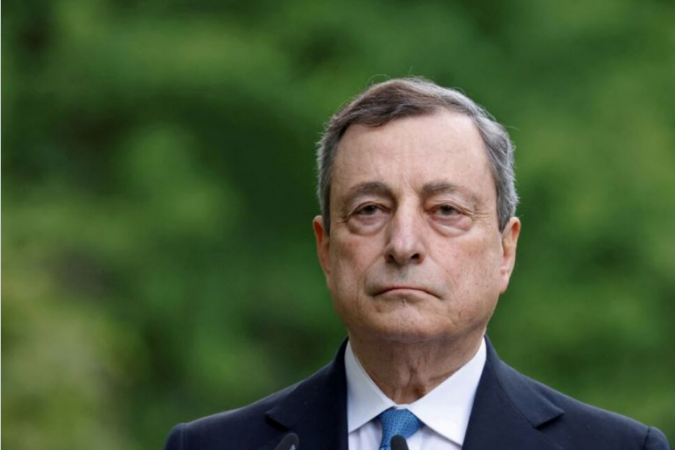
Rome: The 5-Star Movement announced it won't participate in a parliamentary confidence vote on a cost-of-living aid package scheduled for Thursday, putting Prime Minister Mario Draghi's administration in peril.
Here are potential outcomes following the Senate vote, which could cause political calamity throughout the nation.
Skip The Vote, Back to Business
The vote on confidence, which carries significant political weight, has already been called by the government. However, the motion might be withdrawn and the package's individual measures put to a vote in an effort to diffuse the situation. This would enable the 5-Star to express its opposition to one specific provision of the bill — the building of a sizable incinerator in Rome — without completely denouncing the government.
It is far from certain whether this mechanism would reduce coalition tensions or might only postpone the crisis.
Same Premier & Partners
Next week, President Sergio Mattarella might ask Draghi to schedule a new vote of confidence in the government. The national unity coalition would continue to exist even if the 5-Star decided to rejoin the government, albeit battered and bruised.
Giuseppe Conte, a former prime minister and leader of the 5-Star movement, has left the door open for dialogue with Draghi. However, the government is hoping to revive the party's ailing fortunes from the opposition benches as support for 5-Star is steadily declining and many party members are calling for a complete cut.
Same Premier, Less Partners
Draghi calls for a vote of confidence and secures the backing of the other coalition parties, including the League on the right, the Democratic Party (PD) on the center-left, and a sizable contingent of former 5-Star politicians who broke with Conte last month. The former president of the European Central Bank would hold a slimmer but still functional majority in both houses of parliament.
Draghi has stated that he would not remain in office without the 5-Star, and the PD and the League have hinted that they will not support another government if the 5-Star abstains from Thursday's Senate vote.
The operation would upset the government's internal balance because the coalition would be heavily skewed to the right, and demands from the remaining groups could lead to new unrest even if Draghi and the two parties change their minds.
Early Elections:
In the event that Draghi steps down and declines to lead a new administration, the president may dissolve parliament and call early elections for late September or early October. Draghi might continue in his role as interim leader, or Mattarella might ask someone else to lead during the final weeks of the legislative session.
Since World War Two, Italy has not held an autumn election, as the final months of the year are typically used to create the budget.
The risks of early voting are numerous. To secure billions of euros in European funds, Italy still needs to meet numerous legislative and administrative deadlines this year, and these could be missed without a fully functional government in place.
New Series
President Mattarella may attempt to put together another unity government by appointing an institutional leader to lead a new coalition until elections, which are scheduled for the first half of 2023, in an effort to avoid early elections and financial instability.
However, it is difficult to picture the rival groups in Draghi's government trying to unite behind a new leader.
Taiwan wants closer ties with the EU with chip investment
Russia shuts off the gas pipeline as part of 'routine maintenance'.